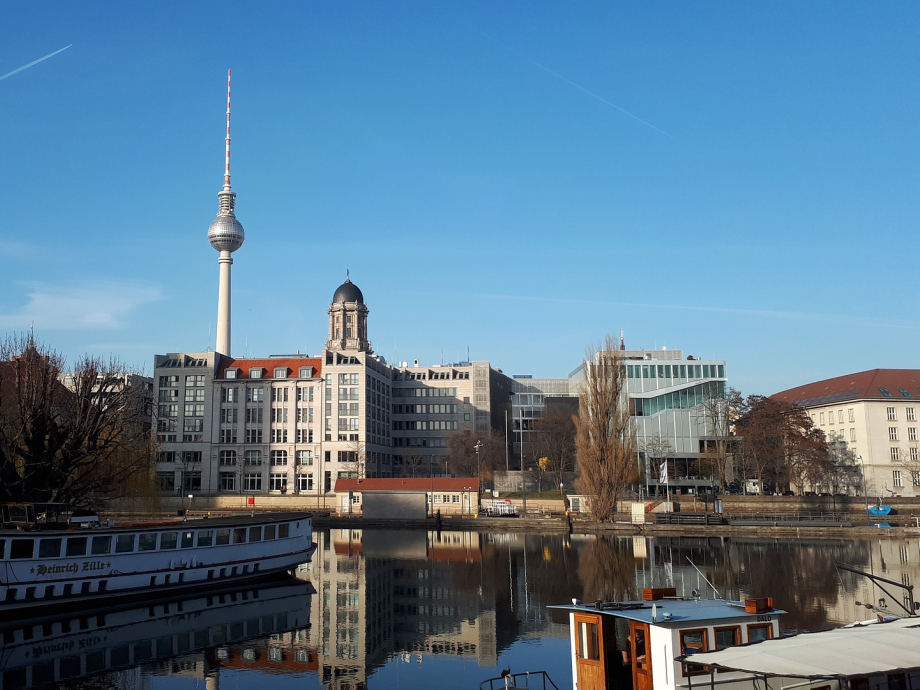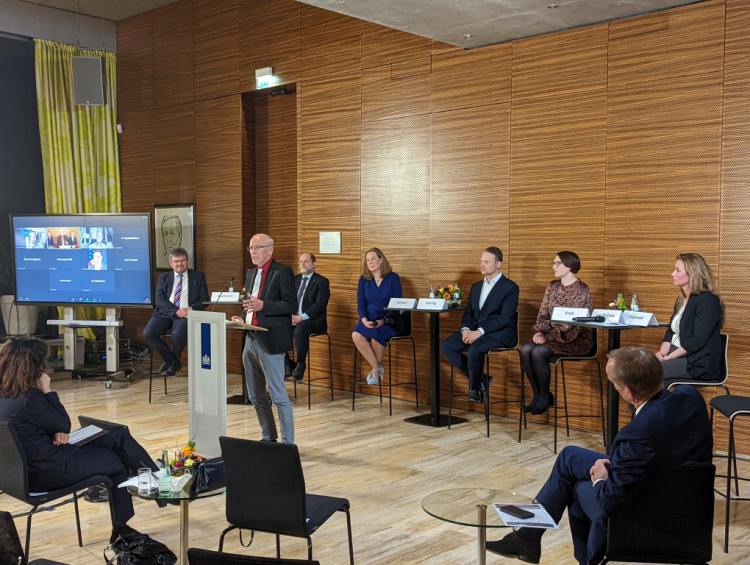The impact of crises marks the handover of the EPTA presidency
Many of the crises that have afflicted Western societies in recent years would have been less severe if we had listened to scientists sooner. This is what German parliamentarian Kai Gehring said at the end of March at the Dutch Embassy in Berlin. The chair of the Education, Research and Technology Assessment Committee of the German Bundestag was there with other parliamentarians because Germany took over the presidency of the European Parliamentary Technology Assessment Network (EPTA). The Rathenau Instituut was president of this network on behalf of the Netherlands in 2021. In 2022, the Büro für Technikfolgen-Abschätzung beim Deutschen Bundestag (TAB) will be president.

In short:
- In 2021, The Rathenau Instituut was president of the EPTA network that consists of 25 organisations that carry out technology assessments for their parliaments.
- The Rathenau Instituut has handed over the EPTA presidency to TAB, which advises the German parliament on the impact of science, innovation and technology on society.
- Researchers from the Rathenau Instituut and TAB engaged in discussions with German parliamentarians about the digital society.
According to Bundestag member Kai Gehring, the 2008 economic crisis, the corona pandemic, and the Russian invasion of Ukraine would have had a lesser impact if politicians had listened more closely to scientists in the fields of climate research, peace research, and health prevention. 'Then we wouldn't have had such major problems with our energy sovereignty here in Germany today’, he said.
The politician of the Green Party did think it was a good thing that the European government is gaining more and more power when it comes to important topics such as energy and digitalisation. 'Perhaps the current crises will lead to a reappraisal of international cooperation that will prepare us better for future crises. If so, something positive will come out of this after all.'
Digital society of tomorrow
After the formal handover of the EPTA presidency, the German politicians, led by Rathenau Instituut coordinator Petra Verhoef, entered into a discussion with researchers from the Rathenau Instituut, the TAB and several other EPTA members via Zoom. The discussion, held at the Dutch Embassy in Berlin, was about shaping tomorrow's digital society. Coordinator Mariëtte van Huijsstee of the Rathenau Instituut emphasised that new technologies will intrude much deeper into the lives of many people: for example through virtual reality, augmented reality, and speech technology. She pointed to the ten design requirements that the Rathenau Instituut formulated to ensure that these developments do not come at the expense of values that we as a society consider important (you can find the design requirements here).
TAB director Armin Grunwald pointed out that we should not be too cynical about the high expectations that many people had in the early years of the Internet. In the early days of the internet, we thought that everyone would be able to communicate without censorship and hierarchy. The free Internet would be the end of dictatorships and democracy would prevail everywhere. 'The potential that people saw then is still there. Our job is to realise it. How can we strengthen democracy by using opportunities of digitalisation?'
Identifying vulnerabilities
Grunwald further referred to the fall of the Berlin Wall, more than 30 years ago. Not long after, the American political scientist Francis Fukuyama published the book The End of History and the Last Man. ‘That largely determined the mindset of politicians in Western society,' said Grunwald. They became too relaxed and assumed that everything would be just business as usual from then on.' The realisation that disruptive events could still occur, he said, mistakenly disappeared from this mindset. 'We've now had another wake-up call. I see it as the job of technology assessment to identify the vulnerabilities of society and look for possible answers to them. We cannot assume that it will remain business as usual.'
